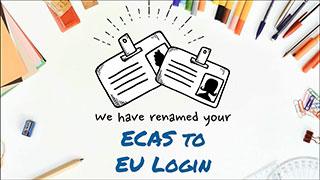What are ESFC and PPPAMS?
The Plant Protection Products Application Management System (PPPAMS) was an IT-system developed by the European Commission to enable industry users to create applications for PPPs and submit these to EU countries for evaluation and allow EU countries to manage these applications and to conclude with authorisation of the PPP or refusal of the application.
PPPAMS was implemented for managing applications from emergency authorisations in June 2016. Discussions on further implementation for other authorisation types to help Member States fulfil obligations under Regulation (EC) No 1107/2009, notably those detailed in Article 57(1) and (2), have been ongoing with Member States and stakeholders since that time.
Since 27 March 2021, ESFC has been implemented for the submission of any new dossier relating to authorisation procedures in any area of the food chain, excluding plant protection products.
In January 2023, the E-Submission Food Chain (ESFC) Platform replaced PPPAMS for the submission of emergency authorisations. The use of ESFC for other PPP application types will be considered in the future.
Guidance for using ESFC to submit and process applications for emergency authorisation of PPPs is available for applicants and Member States.
Accessing the System
All users must create an account before being able to access and use ESFC. Creating an account is a two-step process:
Step 1: Create your EU login account
If you don't already have an EU login account, clicking on the following link will allow you to Create an EU login account.
Step 2: Requesting access to ESFC
The access process involves selecting the application you wish to gain access to (ESFC), selecting your organisation and selecting a user profile (Applicant/ Consultant/Member State).
A user access profile, allows the system to provide or restrict access to products and applications based upon the organisation you belong to as well as your role within the system.
Selecting the correct organisation is therefore very important in setting up your account properly to ensure only you and your colleagues see the appropriate information.
A request for access to ESFC for submitting applications for emergency authorisations of PPPs can be made here.
Confirm that ‘ESFC’ is selected in the Application field and click Step 2: select an organisation.
On tab 2a ‘Select organisation’, check if your organisation is already listed (you can use the search function). If not, click on the tab 2b ‘Create organisation’ and enter your company details. In the parent organisation field you should open ‘Applicant’ then Open ‘Applicant-PEST’. If creating a sub-organisation under an existing organisation you must first find the parent – you can use the search function to do so.
Click Step 3: select an access profile and tick Applicant.
Click Step 4: recap and submission, enter a comment if you wish to and click "Submit request access".
Your request is sent to the European Commission or the lead user in your organisation (depending on the type of request) for validation:
- If you are applying for access to an organisation that has already been set up, the local administrator for that organisation is responsible for validating the request.
- If you are applying for access to a new organisation, the organisation will first be validated by the Commission.
You can find further details in the Guidance for applicants.
User access profiles
Applicants – Industry users
Requesting access
Industry users can register their products within the system and launch applications for these products within different Member States.
They can grant access to other users within their own organisation, to sub-organisations and consultants.
If your organisation has not yet been set up, or if you wish to create a new sub-organisation to an existing one, the first requestor will normally be given rights as a local administrator, enabling further access to colleagues to be granted.
Users who are applying to an existing organisation will have their account validated by the local administrator for that organisation.
Applicants – Consultant users
Consultant users have identical access rights to industry users but access within the system is restricted based upon the organisation that is selected. Access is normally provided by the industry user that they are working for – it is advised that consultants discuss with their clients how they should apply for access as the arrangements will differ between companies and their consultants. A consultant organisation should not normally be a standalone organisation - it is usually linked to an industry organisation in some way (either the consultant user applies for access to the industry organisation directly or to a sub-organisation which can be created either by the industry organisation or the consultant). This ensures that the company for which a consult user is working can also access the applications submitted on their behalf. If a consultant works on behalf of multiple industry organisations, a request for access to each organisation should be made.
Member States/ National Competent Authorities
Member States use ESFC to process and manage applications submitted by industry or consultant users.
Member State users with local administered rights can grant access to others within their Member State organisation.
Management of users, organisations and notification settings
The following video explains how organisations (including sub-organisations) can be set up and also explains the steps that local administrators must take to validate new sub-organisations and process requests for account set up for access to ESFC made by colleagues.
Setting up the correct hierarchy for your organisation is important so that the correct users can see the necessary information in ESFC. The following video explains how hierarchies can be created and how they work.
Setting up organisations and validating requests for access


